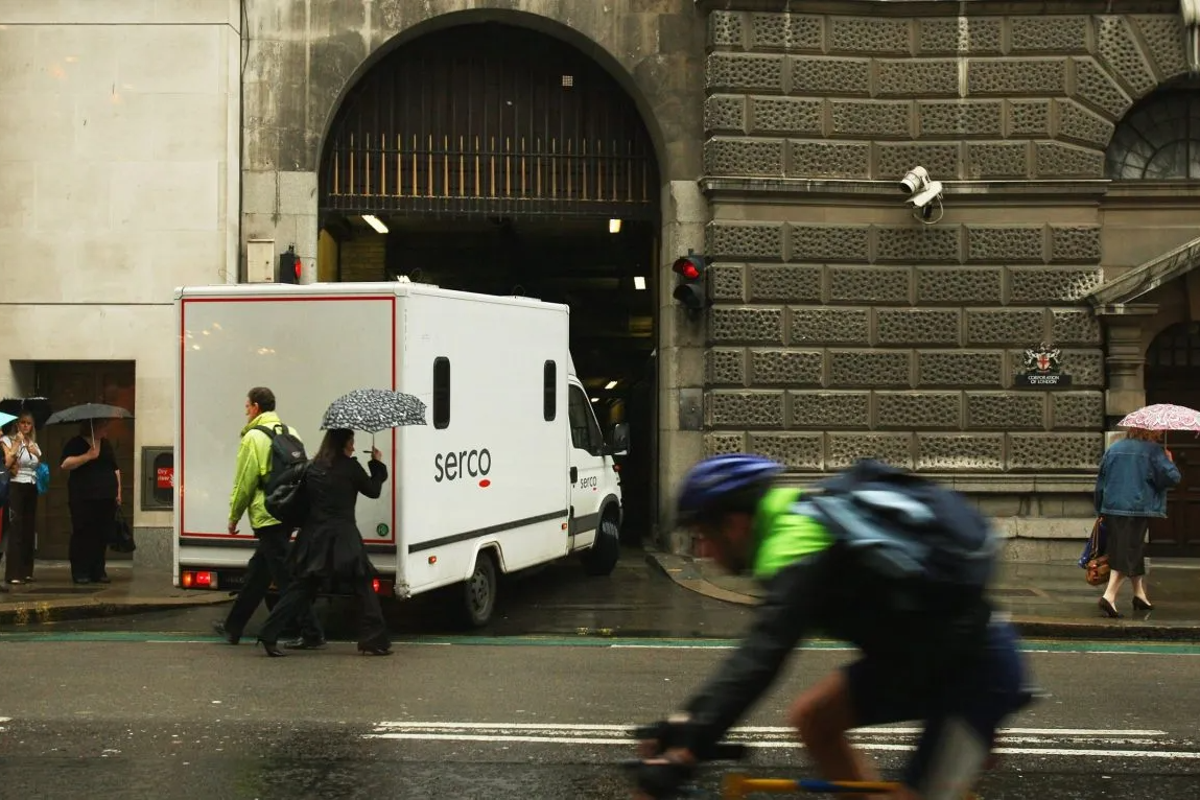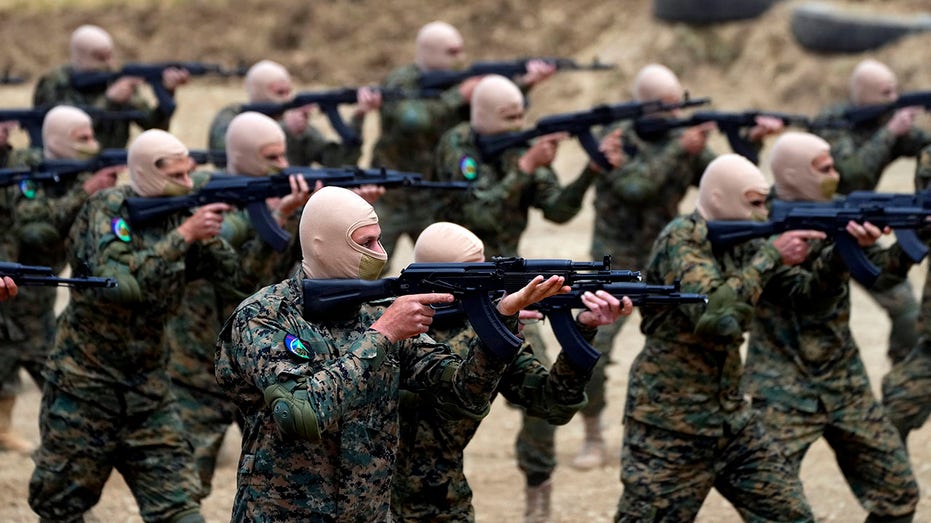Nobel winner Ressa tells AFP 'dangerous times' ahead after Meta ends U.S. fact-checking
Philippine Nobel laureate Maria Ressa warned Wednesday of "extremely dangerous times ahead" in an interview with AFP after social media giant Meta ended its US fact-checking program on Facebook and Instagram.Ressa and the Rappler news site she co-founded have spent years fighting online disinformation while battling court cases filed under former Philippine president Rodrigo Duterte after critical reporting of his deadly drug war.The veteran journalist and winner of the Nobel Peace Prize in 2021 said Meta's decision meant "extremely dangerous times ahead" for journalism, democracy and social media users. "Mark Zuckerberg says it's a free speech issue -- that's completely wrong," Ressa told AFP at Rappler's newsroom in Manila."Only if you're profit driven can you claim that; only if you want power and money can you claim that. This is about safety."Meta's announcement on Tuesday was seen by analysts as an attempt by Zuckerberg to appease US President-elect Donald Trump before his inauguration this month.Trump has been a harsh critic of Meta and Zuckerberg for years, accusing the company of bias against him and threatening to retaliate against the tech billionaire once back in office.Fact-checking and disinformation research have long been a hot-button issue in a hyperpolarized political climate in the United States, with conservative US advocates saying they were a tool to curtail free speech and censor right-wing content.Ressa, who is also a US citizen, rejected Zuckerberg's assertion that fact-checkers had become "too politically biased" and "destroyed more trust than they've created"."Journalists have a set of standards and ethics," Ressa told AFP."What Facebook is going to do is get rid of that and then allow lies, anger, fear and hate to infect every single person on the platform."Meta's actions would lead to a "world without facts" and "that's a world that's right for a dictator", Ressa warned. "Mark Zuckerberg has ultimate power," she said, "and he chooses wrongly to prioritize profit, Facebook's annual profits, over safety of the people on the platforms."- 'Just the beginning' -Rappler is one of the partners working with Facebook's fact-checking program.AFP also currently works in 26 languages with Facebook's fact-checking program, in which Facebook pays to use fact-checks from around 80 organizations globally on its platform, WhatsApp and on Instagram.In a statement shared with AFP, Rappler said it intends to continue working with Facebook "to protect fellow Filipinos from manipulation and the dangers of disinformation"."What has happened in the US is just the beginning," Rappler said."It is an ominous sign of more perilous times in the fight to preserve and protect our individual agency and shared reality."Ressa has long maintained that the charges against her and Rappler were politically motivated after their critical reporting of the Duterte government's policies, including its anti-drugs crackdown that killed thousands of people.Trump, who vowed in his first post-election news conference to "straighten out" the "corrupt" US press, appeared to have taken a page from Duterte's playbook, Ressa said.The incoming US president has launched unprecedented lawsuits against newspapers and pollsters that observers worry are the signs of escalating intimidation and censorship tactics.Ressa vowed to do everything she could to "ensure information integrity"."The Nobel Prize said that you cannot have democracy if you don't have journalism," Ressa said."This is a pivotal year for journalism's survival. We'll do all we can to make sure that happens."© Agence France-PresseAdd to cart Print Share this document Copy the link


Philippine Nobel laureate Maria Ressa warned Wednesday of "extremely dangerous times ahead" in an interview with AFP after social media giant Meta ended its US fact-checking program on Facebook and Instagram.
Ressa and the Rappler news site she co-founded have spent years fighting online disinformation while battling court cases filed under former Philippine president Rodrigo Duterte after critical reporting of his deadly drug war.
The veteran journalist and winner of the Nobel Peace Prize in 2021 said Meta's decision meant "extremely dangerous times ahead" for journalism, democracy and social media users.
"Mark Zuckerberg says it's a free speech issue -- that's completely wrong," Ressa told AFP at Rappler's newsroom in Manila.
"Only if you're profit driven can you claim that; only if you want power and money can you claim that. This is about safety."
Meta's announcement on Tuesday was seen by analysts as an attempt by Zuckerberg to appease US President-elect Donald Trump before his inauguration this month.
Trump has been a harsh critic of Meta and Zuckerberg for years, accusing the company of bias against him and threatening to retaliate against the tech billionaire once back in office.
Fact-checking and disinformation research have long been a hot-button issue in a hyperpolarized political climate in the United States, with conservative US advocates saying they were a tool to curtail free speech and censor right-wing content.
Ressa, who is also a US citizen, rejected Zuckerberg's assertion that fact-checkers had become "too politically biased" and "destroyed more trust than they've created".
"Journalists have a set of standards and ethics," Ressa told AFP.
"What Facebook is going to do is get rid of that and then allow lies, anger, fear and hate to infect every single person on the platform."
Meta's actions would lead to a "world without facts" and "that's a world that's right for a dictator", Ressa warned.
"Mark Zuckerberg has ultimate power," she said, "and he chooses wrongly to prioritize profit, Facebook's annual profits, over safety of the people on the platforms."
- 'Just the beginning' -
Rappler is one of the partners working with Facebook's fact-checking program.
AFP also currently works in 26 languages with Facebook's fact-checking program, in which Facebook pays to use fact-checks from around 80 organizations globally on its platform, WhatsApp and on Instagram.
In a statement shared with AFP, Rappler said it intends to continue working with Facebook "to protect fellow Filipinos from manipulation and the dangers of disinformation".
"What has happened in the US is just the beginning," Rappler said.
"It is an ominous sign of more perilous times in the fight to preserve and protect our individual agency and shared reality."
Ressa has long maintained that the charges against her and Rappler were politically motivated after their critical reporting of the Duterte government's policies, including its anti-drugs crackdown that killed thousands of people.
Trump, who vowed in his first post-election news conference to "straighten out" the "corrupt" US press, appeared to have taken a page from Duterte's playbook, Ressa said.
The incoming US president has launched unprecedented lawsuits against newspapers and pollsters that observers worry are the signs of escalating intimidation and censorship tactics.
Ressa vowed to do everything she could to "ensure information integrity".
"The Nobel Prize said that you cannot have democracy if you don't have journalism," Ressa said.
"This is a pivotal year for journalism's survival. We'll do all we can to make sure that happens."
© Agence France-PresseAdd to cart Print Share this document Copy the link



